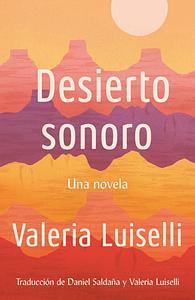Take a photo of a barcode or cover
challenging
dark
emotional
hopeful
informative
reflective
sad
medium-paced
Plot or Character Driven:
A mix
Strong character development:
Yes
Loveable characters:
Yes
Diverse cast of characters:
Yes
Flaws of characters a main focus:
Yes
Loved the allusion and the meditation of the first half of the novel; the prose loses some sharpness with the POV shift, though. I found Luiselli's "Work Cited" section interesting, inspiring, and illuminating.
challenging
emotional
hopeful
informative
inspiring
reflective
sad
tense
medium-paced
Plot or Character Driven:
A mix
Strong character development:
Yes
Loveable characters:
Yes
Diverse cast of characters:
Yes
Flaws of characters a main focus:
Yes
I was defs not the target audience for this, but it was still good
challenging
emotional
informative
reflective
tense
slow-paced
Plot or Character Driven:
Plot
Strong character development:
Yes
Loveable characters:
Yes
Diverse cast of characters:
Complicated
Flaws of characters a main focus:
Yes
This novel is exquisitely pieced together. The story is rich and has twists and turns. The format is very different from books I’ve read, and it is very slow paced. However, the pros outweigh the cons for this novel and I think the author does an amazing job of making the reader question whether this is a work of fiction or nonfiction given the subject matter.
There have been many books that have been written about the immigrant experience, not least of which is a book I read a couple of years ago, shortly following it's publication - the now infamous American Dirt by Jeanine Cummins. It attracted a great deal of vitriol, largely due to extremely ill-managed marketing and the abysmal image of Mexico which it portrayed. I recall, shortly after reading it, that one of it's detractors had mentioned a book called Lost Children Archive by Valeria Luiselli, recommending it as a worthy alternative to Cummins' novel. I mentally filed it away in my mind, under 'things I may revisit'.
It's taken me two years to get round to reading it. Having said that, those two years have allowed a rich tapestry of literary material to be consumed, enriching my mind and bringing a deeper appreciation of the merits which a book may (or may not) possess. Lost Children Archive is the perfect book for those who seek out such merit.
To describe it as a book that describes the 'immigrant experience' is to do the book a disservice. At an extremely superficial level, it describes a road-trip - that of a married couple, who are both acousticians, and their two young children, denoted throughout the book as simply 'boy' and 'girl'. The wife and mother of the family is our first narrator and it is made clear early on that a crossroads in her and her husband's chosen careers is likely to end their marriage. Different projects - the documenting of the experiences of child immigrants across the Southern US border by Mexican 'lost' children (the mother's project) and the use of sound recordings to tell the story of the final steps of the Apache's before their tragic end (the husband's project) cause an apparently irreconcilable difference in their needs and wants. The road-trip is their chance for both of them to take their first steps on each of these projects.
The mother carries with her on the trip a book (Elegies for Lost Children, which details the experiences of the eponymous 'lost children' of both it's title and that of Luiselli's novel. Through the act of reading it's pages to the children during the road-trip, we are provided with knowledge of the contents of Elegies for Lost Children. This flavours Luiselli's novel with a beautiful, haunting quality, echoing as it does the experiences of her own daughter and stepson. They obviously aren't immigrants, clearly they do not share every experience of the children written of in Elegies for Lost Children. But as becomes clear in the latter stages of Lost Children Archive, they are in their own way, lost children. Throughout the segment narrated by the mother, her relationship with boy and girl is incredibly tender. The playfulness of the children is so authentic that it almost feels like auto-fiction. Except, it is not.
The final third or so of the book, is narrated by boy. It is in the book's latter stages,
There's also plenty of intertextuality to Luiselli's work. This may be something that floats your boat as a reader but it usually either escapes me entirely, or takes secondary importance to other factors. But regardless, Lost Children Archive is one of the most haunting, beautiful works of literature which I have read in a long time. The novel is so deftly written by Luiselli that it never seems heavy-handed, never for one moment feels as though she is searching blindly to find the books purpose. It is as though she is turning a dial in such fine increments, that a micro-movement of the fingers could destroy her efforts with white noise. But instead she finds that sliver in between the static, the sequence of notes that together represent the melody we seek.
It's taken me two years to get round to reading it. Having said that, those two years have allowed a rich tapestry of literary material to be consumed, enriching my mind and bringing a deeper appreciation of the merits which a book may (or may not) possess. Lost Children Archive is the perfect book for those who seek out such merit.
To describe it as a book that describes the 'immigrant experience' is to do the book a disservice. At an extremely superficial level, it describes a road-trip - that of a married couple, who are both acousticians, and their two young children, denoted throughout the book as simply 'boy' and 'girl'. The wife and mother of the family is our first narrator and it is made clear early on that a crossroads in her and her husband's chosen careers is likely to end their marriage. Different projects - the documenting of the experiences of child immigrants across the Southern US border by Mexican 'lost' children (the mother's project) and the use of sound recordings to tell the story of the final steps of the Apache's before their tragic end (the husband's project) cause an apparently irreconcilable difference in their needs and wants. The road-trip is their chance for both of them to take their first steps on each of these projects.
The mother carries with her on the trip a book (Elegies for Lost Children, which details the experiences of the eponymous 'lost children' of both it's title and that of Luiselli's novel. Through the act of reading it's pages to the children during the road-trip, we are provided with knowledge of the contents of Elegies for Lost Children. This flavours Luiselli's novel with a beautiful, haunting quality, echoing as it does the experiences of her own daughter and stepson. They obviously aren't immigrants, clearly they do not share every experience of the children written of in Elegies for Lost Children. But as becomes clear in the latter stages of Lost Children Archive, they are in their own way, lost children. Throughout the segment narrated by the mother, her relationship with boy and girl is incredibly tender. The playfulness of the children is so authentic that it almost feels like auto-fiction. Except, it is not.
The final third or so of the book, is narrated by boy. It is in the book's latter stages,
Spoiler
following the break-up of his mother's marriage, that boy writes down the words which he hopes girl shall one day read. Words that detail how much he loves her, the things that endeared her to him and word which express his sorrow for all that he did wrong during their time together. This segment is tender, compassionate and to put it simply, divine.There's also plenty of intertextuality to Luiselli's work. This may be something that floats your boat as a reader but it usually either escapes me entirely, or takes secondary importance to other factors. But regardless, Lost Children Archive is one of the most haunting, beautiful works of literature which I have read in a long time. The novel is so deftly written by Luiselli that it never seems heavy-handed, never for one moment feels as though she is searching blindly to find the books purpose. It is as though she is turning a dial in such fine increments, that a micro-movement of the fingers could destroy her efforts with white noise. But instead she finds that sliver in between the static, the sequence of notes that together represent the melody we seek.
slow-paced
Plot or Character Driven:
Character
Strong character development:
Yes
Loveable characters:
Complicated
Diverse cast of characters:
Yes
Flaws of characters a main focus:
Yes
Reaaaally wanted to like this one, but I kept wanting to DNF it through the whole thing. Just super wordy and I felt like it could have been written in a different way
How to give half of a star? Bcs this book is not that good, but not terrible either.
emotional
informative
reflective
sad
slow-paced
Plot or Character Driven:
Character
Strong character development:
Yes
Loveable characters:
Yes
Diverse cast of characters:
Yes
Flaws of characters a main focus:
Complicated
I struggled a bit with this one. It’s not your average story arc. It started off quite strong and had great character development. It began to plateau a bit but then a narrator change kept things interesting. Once finished, I really appreciated the story in its totality, as all the pieces and themes came together. I thought Luiselli’s technique towards the end of weaving two narratives together in real time and space was very effective and powerful, and kept you wondering if both parties were actually existing at the same time or were just echoes of a similar story. Again, not a major page turner in my opinion but a story you’re glad you read once you’ve finished.




